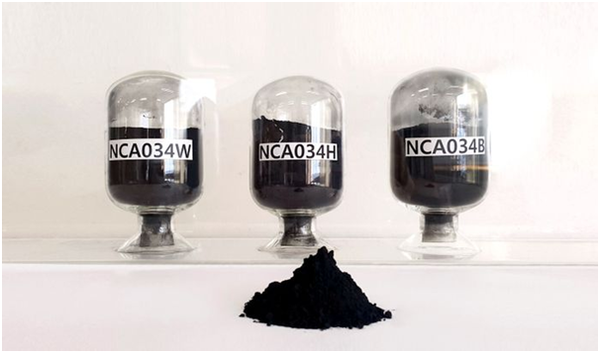

EcoPro announced on August 17 that its cumulative sales of nickel-cobalt-aluminium (NCA) cathode materials have surpassed 300,000 tonnes as of the first half of this year (H1 2025). This amount is sufficient to produce around 3 million electric vehicles.

Since beginning commercial production of NCA cathode materials in 2008, EcoPro initially sold approximately 100,000 tonnes for power tools and electric bicycles by 2021. However, with the growing demand for electric vehicles and energy storage systems (ESS) batteries, the company has sold an additional 200,000 tonnes since 2022.
NCA cathode material was the first product developed by EcoPro after it entered the secondary battery industry in 2004. Known for its 20-30 per cent higher energy density compared to the widely used NCM (Nickel-Cobalt-Manganese) materials, NCA is more complex to produce, posing a higher technological barrier.
Get more industry related insights from - ‘Aluminium Flat Rolled Products: Insights & Forecast to 2030’
Applications of nickel-cobalt-aluminium
Nickel-Cobalt-Aluminium (NCA) cathode materials are widely used in lithium-ion batteries due to their high energy density, long lifespan, and excellent performance in demanding applications. These materials, typically composed of lithium nickel cobalt aluminium oxide (LiNi0.8Co0.15Al0.05O2), are primarily utilised in electric vehicles (EVs) because their high nickel content significantly enhances battery capacity, leading to longer driving ranges on a single charge. NCA batteries also deliver high specific energy and power, making them ideal for EVs that need efficient and powerful energy storage.
Apart from EVs, NCA cathodes find applications in consumer electronics, providing longer usage times between charges, and in critical medical devices, where reliability and longevity are essential.
Additionally, they are used in renewable energy storage systems such as home batteries and grid energy storage, where efficient energy release and storage are key. The aluminium content in NCA cathodes not only improves their structural and thermal stability but also enhances safety by reducing risks related to thermal runaway.
When EcoPro entered the secondary battery market, which Japan then dominated, it achieved technology internalisation by directly manufacturing the equipment required for development.
Also Read: Alongside aluminium, Rio Tinto strengthens lithium project for EV; inks a deal with ENAMI
EcoPro’s journey so far
In 2005, after completing precursor facilities, the company acquired the cathode material business from Cheil Industries in 2006, solidifying its position as a full-fledged NCA cathode material producer. The company further strengthened its NCA cathode material development capabilities with technical guidance from Sony, the global leader in secondary batteries at the time.
Sony sent a technical team to EcoPro’s Ochang facility in North Chungcheong Province to assist in removing metal impurities and reducing unreacted lithium produced during the cathode material manufacturing process. Unreacted residual lithium, which negatively impacts cathode material performance, typically reaches levels around 10,000 ppm (1 per cent) when the nickel content exceeds 80 per cent. Sony requested that EcoPro reduce the unreacted lithium level to 2,000 ppm (0.2 per cent). With Sony’s technical guidance, EcoPro rapidly advanced its high-nickel cathode material manufacturing technology, successfully supplying 6 tonnes of battery cathode materials for testing in 2013.
In 2021, EcoPro further expanded its reach by forming a joint venture with Samsung SDI, called EcoPro EM, and has since supplied all NCA cathode materials produced there to Samsung SDI. EcoPro is boosting its sales volume by broadening its applications from power tools to electric vehicles and energy storage systems (ESS). Notably, sales of EcoPro’s cathode materials for ESS grew sixfold in 2023, driven by the recent surge in the ESS market.
Compared to other cathode materials like Nickel Manganese Cobalt Oxide (NMC), NCA offers superior specific energy, closely rivalling lithium cobalt oxide, which makes it advantageous where weight and space efficiency are vital. Overall, NCA cathode materials play a crucial role in advancing high-performance, long-lasting, and safe lithium-ion batteries, especially in the rapidly growing electric vehicle market and other applications demanding high energy density and durability.
Responses








